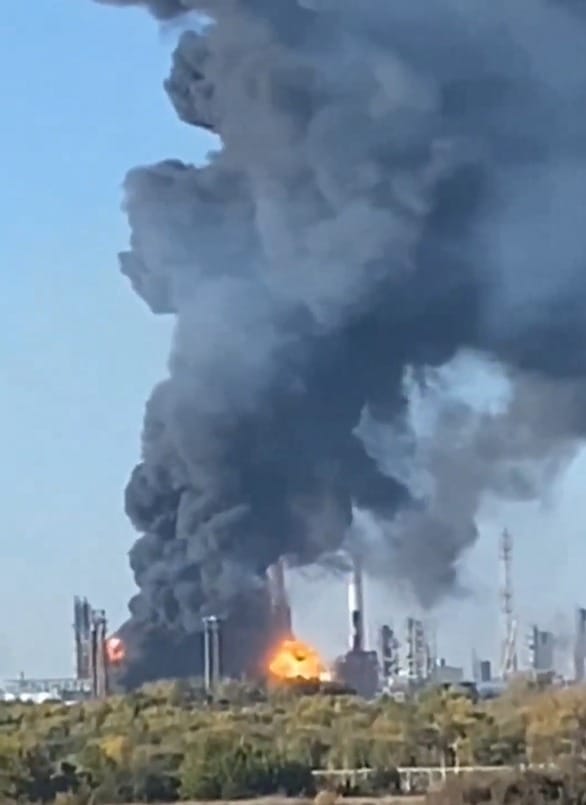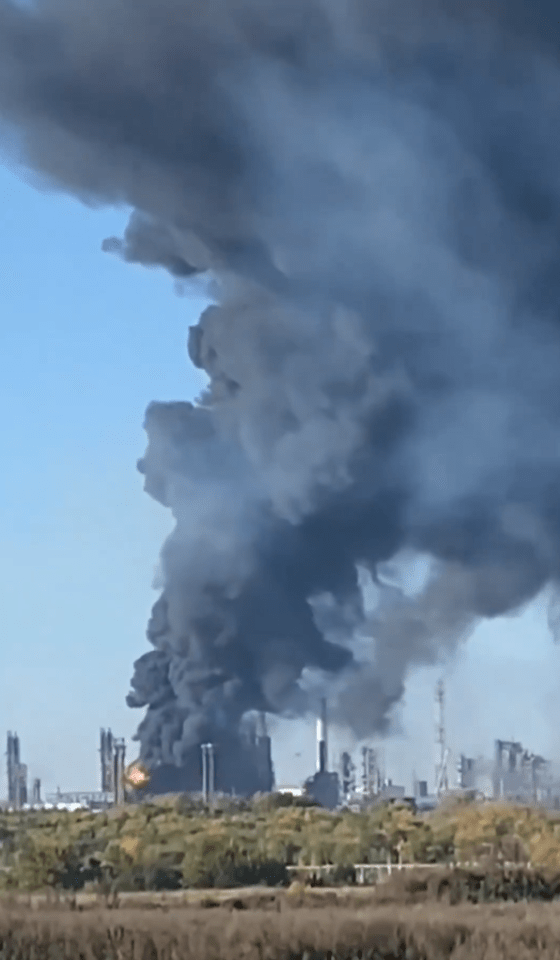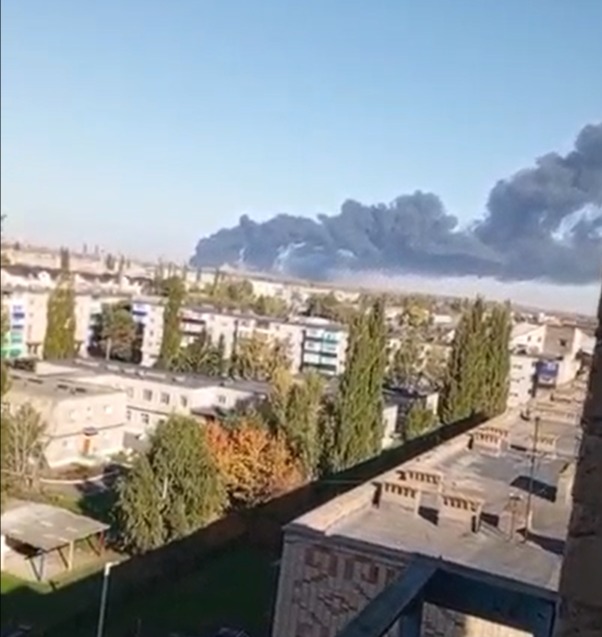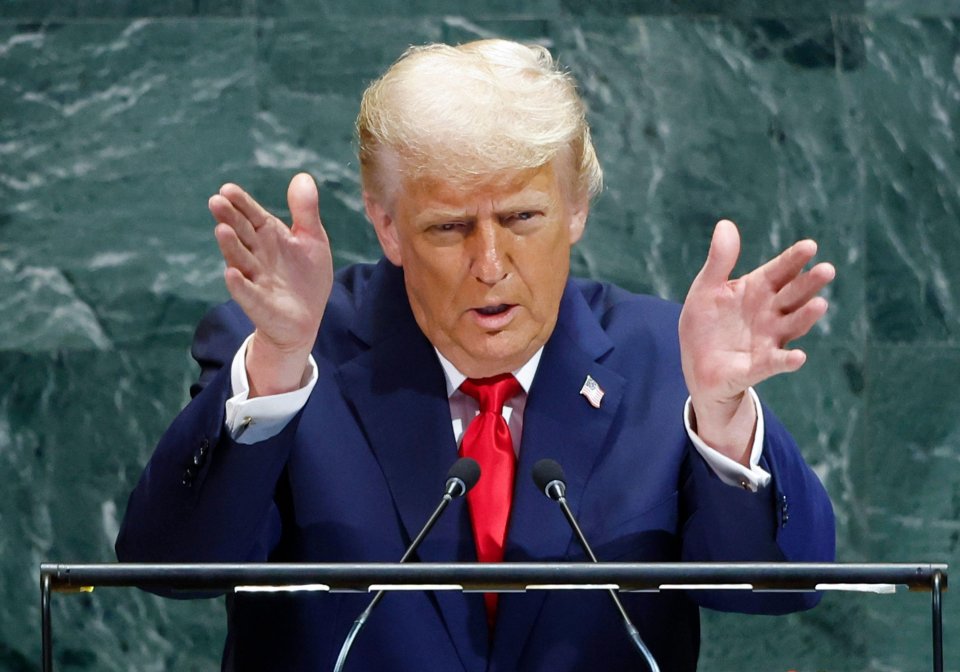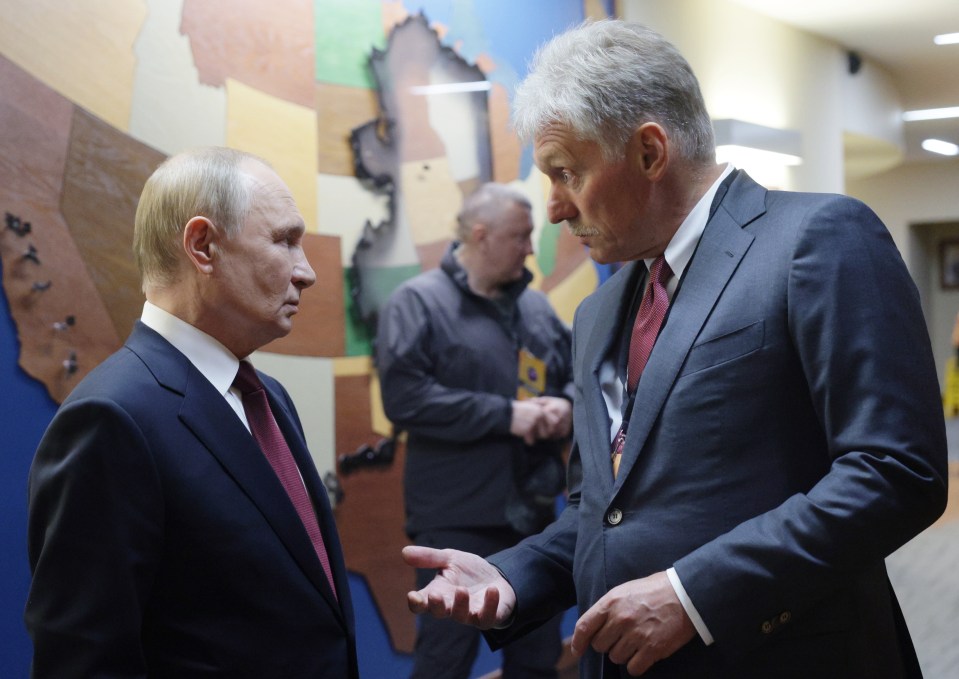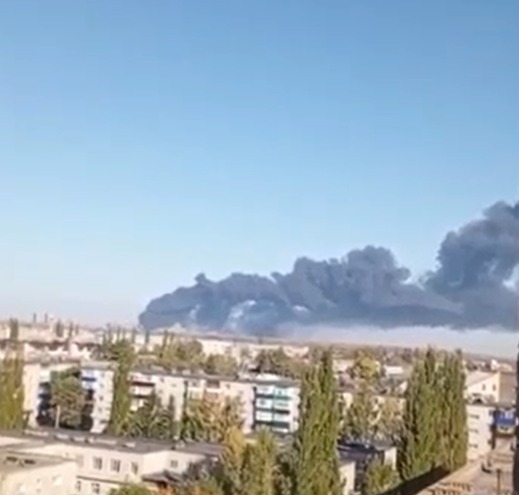THIS is the moment a Ukraine naval drone strikes one of Vladimir Putin’s key fuel sites sparking chaos in Russia.
The Salavat factory was hit for the second time in less than a week amid Volodymyr Zelensky’s soaring campaign against Russian oil.
Footage shows thick black smoke billowing out of the facility as an inferno rages on the ground.
A second explosion, meanwhile, is seen pounding the building.
Locals reported hearing a “loud noise” before flames ravaged the surrounding area.
The Salavat refinery, considered a linchpin in Russia’s oil industry, was last hit on September 18 – causing a “massive explosion”, according to local media.
It’s just one of a number of facilities Ukraine has targeted in recent weeks as it steps up its campaign on Russian energy infrastructure.
The strikes have sparked chaos in Moscow with petrol stations reportedly not able to stockpile fuel.
Widely used petrol – such as Ai 92 and Ai 95 – are often unavailable, according to reports.
One employee at a petrol station in the western Belgorod suggested the oil crisis had reached a tipping point, with stations forced to close “because there was no gasoline”.
She told Reuters: “The station in the neighbouring village also closed, and others simply ran out of gasoline.”
Moscow has been forced to ban fuel exports for six months, sacrificing vital revenue just to stop unrest at home.
Military intelligence expert Philip Ingram MBE previously explained how “Putin’s greatest fear” is “the Russian people rising up.”
Before the invasion, energy exports made up around 40 per cent of the Kremlin’s budget.
Even under sanctions, oil and gas still bring in 30 per cent of Russia’s income.
He showed how Ukraine has zeroed in on this “river of oil money” with pinpoint strikes hundreds of miles inside Russian territory.
Long-range drones have torched colossal refineries, exploded pumping stations and set storage tanks ablaze – systematically dismantling Moscow’s refining capacity.
The campaign has shattered Russia’s aura of invulnerability, exposed its sprawling oil empire as a fatal weakness, and brought the war crashing into the lives of ordinary Russians.
And as Ingram puts it: “It proves that in modern warfare, the most effective battle plans aren’t always about brute force on the tactical frontline, but about finding your enemy’s single point of failure – and striking it again and again with unrelenting precision.”
It comes as Donald Trump announced in his keynote speech at the UN General Assembly that Ukraine could win back “every inch” of its territory with Russia.
In a major pivot from his previous stance on the three-and-a-half-year conflict, Trump also dismissed Russia’s military strength and mocked its inability to beat Ukraine in just a few days.
Posting on his social media platform Truth Social, Trump said Ukraine “may be able to take back their country in its original form and, who knows, maybe even go further than that”.
Trump’s Vlad-bashing follows months of growing frustration at Putin’s refusal to end the offensive in Ukraine.
Kremlin spokesman Dmitry Peskov hit back at Trump’s insults, particularly those levelled at the Russian economy.
“The phrase ‘paper tiger’ was used in relation to our economy,” he said.
“Russia is more associated with a bear. And paper bears don’t exist.
“Russia is a real bear.”
Peskov did, however, admit that the Russian economy had faced “tensions”.
